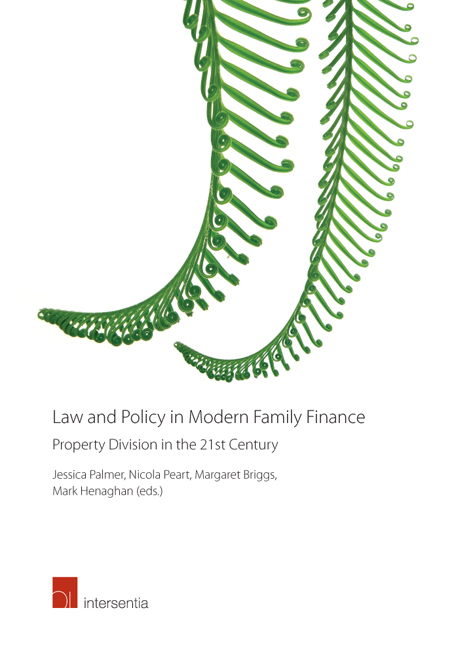Book contents
- Frontmatter
- Foreword
- Acknowledgements
- Contents
- Table of Cases
- List of Contributors
- Chapter 1 Introduction
- PART I WHO SHOULD BE COVERED BY A PROPERTY SHARING REGIME?
- PART II WHAT PROPERTY SHOULD BE COVERED BY A PROPERTY SHARING REGIME?
- PART III HOW SHOULD PROPERTY BE SHARED AT THE END OF A RELATIONSHIP?
- Chapter 11 Should the Regime be Discretionary or Rules-Based?
- Chapter 12 Sharing Family Finances at the End of a Relationship
- Chapter 13 Should a Property Sharing Regime be Mandatory or Optional?
- Chapter 14 Contracting Out of the Default Relationship Property Regime – Comparative Observations
- Chapter 15 Maintenance – Time for a Clean Break?
- Index
Chapter 12 - Sharing Family Finances at the End of a Relationship
from PART III - HOW SHOULD PROPERTY BE SHARED AT THE END OF A RELATIONSHIP?
Published online by Cambridge University Press: 29 September 2018
- Frontmatter
- Foreword
- Acknowledgements
- Contents
- Table of Cases
- List of Contributors
- Chapter 1 Introduction
- PART I WHO SHOULD BE COVERED BY A PROPERTY SHARING REGIME?
- PART II WHAT PROPERTY SHOULD BE COVERED BY A PROPERTY SHARING REGIME?
- PART III HOW SHOULD PROPERTY BE SHARED AT THE END OF A RELATIONSHIP?
- Chapter 11 Should the Regime be Discretionary or Rules-Based?
- Chapter 12 Sharing Family Finances at the End of a Relationship
- Chapter 13 Should a Property Sharing Regime be Mandatory or Optional?
- Chapter 14 Contracting Out of the Default Relationship Property Regime – Comparative Observations
- Chapter 15 Maintenance – Time for a Clean Break?
- Index
Summary
INTRODUCTION
When marriages, civil partnerships (known as ‘civil unions‘ in New Zealand), and de facto relationships end, the division of family finances is inevitable. Family finances consist of all of the parties ‘assets in existence at that time. The expectation is that the law will provide a fair method for dividing the parties‘ finances. What is fair or not differs between societies and across generations. Lord Nicholls summed up the subjective nature of fairness well in Miller v Miller; McFarlane v McFarlane when he said:
‘ Fairness is an elusive concept. It is an instinctive response to a given set of facts. Ultimately it is grounded in social and moral values. These values, or attitudes, can be stated. But they cannot be justified, or refuted, by any objective process of logical reasoning. Moreover, they change from one generation to the next. It is not surprising therefore that in the present context there can be different views on the requirements of fairness in any particular case.’
After an examination of the underlying purposes of dividing family finances, this chapter focuses on how best to divide family finances, drawing primarily on legislative and judicial analysis from New Zealand and England and Wales. This chapter argues that all the ‘fruits‘ of a qualifying relationship, in terms of both capital assets and human capital (income earning capacity), should be shared equally between the parties upon the conclusion of a qualifying marriage, civil union, or de facto relationship (a ‘qualifying relationship‘).
The chapter ultimately provides a case study of general international application as to how politicians and judges see their society, and what counts most in determining a share in family finances at the end of a qualifying relationship. It provides two possible formulas for ensuring that both parties receive their fair share going into the future.
THE PURPOSES OF DIVIDING FAMILY FINANCES
Law is a means of resolving disputes in a society. In order to effectively resolve disputes, the law must be clear in wording and purpose, it must be fair, and it needs to be accessible to all members of society, without the need for expensive litigation.
- Type
- Chapter
- Information
- Law and Policy in Modern Family FinanceProperty Division in the 21st Century, pp. 293 - 328Publisher: IntersentiaPrint publication year: 2017



